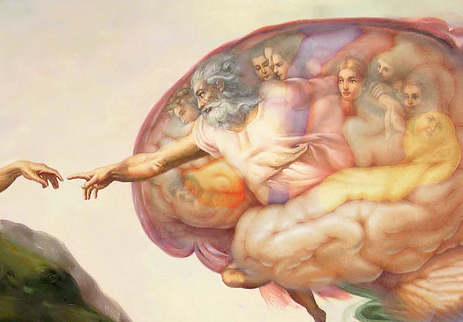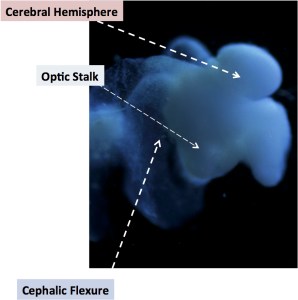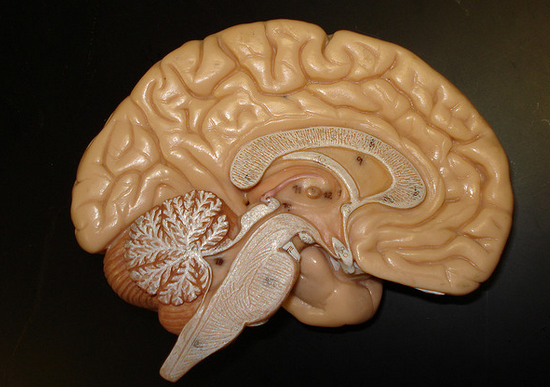BTN.com staff, September 13, 2015
 With apologies to Dr. Frankenstein, it seems there?s someone at The Ohio State University who might deserve the title ?Modern Prometheus.?
With apologies to Dr. Frankenstein, it seems there?s someone at The Ohio State University who might deserve the title ?Modern Prometheus.?
Biological chemistry and pharmacology professor Rene Anand claims to have grown the most complete human brain in the world to date, one that is roughly as mature as that of a five-week-old fetus.
The lab-grown organ is the size of a pencil eraser and contains 99 percent of the genes found in a standard human brain, Anand said. It contains a spinal cord, all major regions of the brain and even a retina. The main thing that?s still missing is a vascular system.
?We have all the major parts of the brain, but not all the components,? he explained.

Anand decided to pursue a model of human neural biology after some disappointing results in a rodent study of an experimental autism drug. By incorporating stem-cell engineering into his research, he now has a replica of the human brain.
The organ was created by converting adult skin cells into versatile stem cells that can be programmed to grow into any kind of bodily tissue. These were then induced to grow into different components of the brain and central nervous system, a process that took 12 weeks.
While creating the brain is a truly impressive feat, the real value in Anand?s discovery is that it could provide a platform to improve research and test treatments for many brain-related illnesses such as autism, Parkinson?s disease and post-traumatic stress disorder. And once a vascular system is added, Anand and other researchers can study other diseases such as strokes and vascular dementia.
The work they?re doing opens the door to extremely personalized treatment for a variety of brain conditions in the future.
[btn-post-package]?Our hope is that we will be able to understand what goes wrong and how it goes wrong at the molecular and cellular levels,? Anand said. ?Hopefully, from that knowledge we get new insight and [once] we get multidisciplinary collaboration involved, we might be able to come up with new ideas to try and fix [diseases].?
Though he says that this is still a preliminary finding that requires peer review and replication in other labs, Anand is optimistic about the eventual results of the process.
?I believe nothing is impossible,? he said. ?It?s just a matter of being smart enough to know what to do.?
By Maggie Hays







